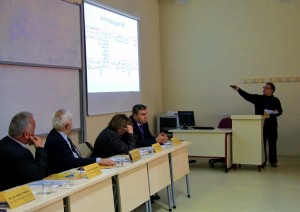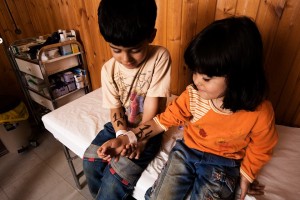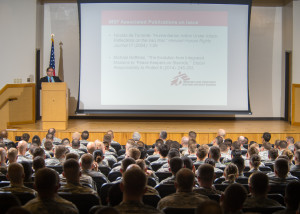Associate Professor of History and American Studies Nabil Al-Tikriti appeared on Los Angeles-based KPFK’s “Radio Uprising” program on Wednesday, April 15, to discuss the latest developments in Iraq and the region. Al-Tikriti has now appeared on this program, hosted by Sonali Kolhatkar, at least three times in the past two years.
The segment lasted just over five minutes, and can be screened via this podcast link. (Direct video link here.) In the course of this discussion, Al-Tikriti compared the current Iraqi Prime Minister to the previous officeholder, and commented on the state of the Iraqi military, as well as American media coverage of Iraq in general.
On Monday, April, 20, in his capacity as a member of the Board of Directors for MSF/Doctors Without Borders USA, Al-Tikriti represented MSF on a joint panel addressing military-humanitarian cooperation. The panel was part of the Marine Corps University’s “Nine Innings” exercise on humanitarian assistance and disaster relief at Quantico, Virginia. In the course of this panel, Al-Tikriti joined representatives from ICRC, IMC, OCHA and Islamic Relief to provide institutional perspectives on these and related concerns.





